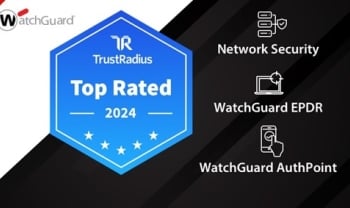Cybersecurity: a key player for the present and future of business

Cybersecurity Awareness Month has been celebrated every October for 20 years. This initiative, promoted by the Cybersecurity and Infrastructure Agency (CISA) with the support of the National Cybersecurity Alliance, aims to raise awareness of the importance of implementing a comprehensive cybersecurity system.
Over the past few years, we have seen how cyberattacks have grown more frequent. According to a recent study published by Deloitte, 91% of the businesses surveyed have suffered an incident of one kind or another in their systems, most of which were related to external attacks. Given this situation, businesses need to seek advice and establish cybersecurity protocols to protect themselves against potential threats. Moreover, MSPs need to keep abreast of cybersecurity advances and offer a comprehensive portfolio that adapts to the needs of each organization and ensures they deliver optimal customer service.
20 years working on cybersecurity: what we have achieved
There are a host of cybersecurity professionals, vendors and partners working to achieve and provide solutions that protect systems against all manner of attacks. Thanks to these concerted efforts, we have made great strides over the last two decades to make cybersecurity available to all. Today, there are a number of basic resources and procedures that help businesses implement an effective cybersecurity system and assist MSPs in their bid to offer a comprehensive service. Here are a few tools and actions you can adopt to make business systems more secure:
-
Secure passwords and password manager: the basis of a good cybersecurity protocol is a strong, unique, and ultimately secure password. This is one of the simplest, yet most important ways to ensure business and user cyber systems remain secure. More sophisticated solutions have also been developed in recent years to enhance password management, such as credential managers.
-
Multi-factor authentication (MFA): this measure requires users to log in by verifying their identity in diverse ways, preventing the session from being initiated by an unauthorized agent. This tool provides an extra layer of security when accessing systems and is often a prerequisite to obtaining a cyber insurance policy.
-
Recognizing and reporting phishing cases: phishing is one of the most common forms of attack that particularly targets endpoint devices. This threat consists of sending emails impersonating the identity of organizations of interest with the aim of obtaining personal and banking data from the user. User training and awareness is key to teaching employees how to identify fraudulent addresses and avoid falling victim to phishing. Running anti-phishing training courses can also deliver a competitive advantage for MSPs that include this service. Deploying a complete security system provides greater security for endpoint devices to protect against this type of attack.
-
Updated software: Some gaps in cybersecurity protocols can be mitigated by updates, which will help the system defend itself in the future. This means both MSPs and businesses must be aware of all current updates and patches to cover vulnerabilities and accompanying functionalities.
Adopting a unified and simplified security approach can make a substantial difference when combating advanced threats. During this year’s Cybersecurity Awareness Month we would like to highlight how businesses can ensure their IT security system is complete and the key role that MSPs play in promoting the adoption and implementation of accessible, connected, and secure solutions.






